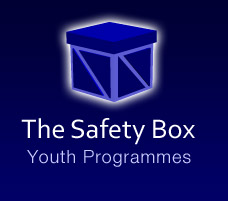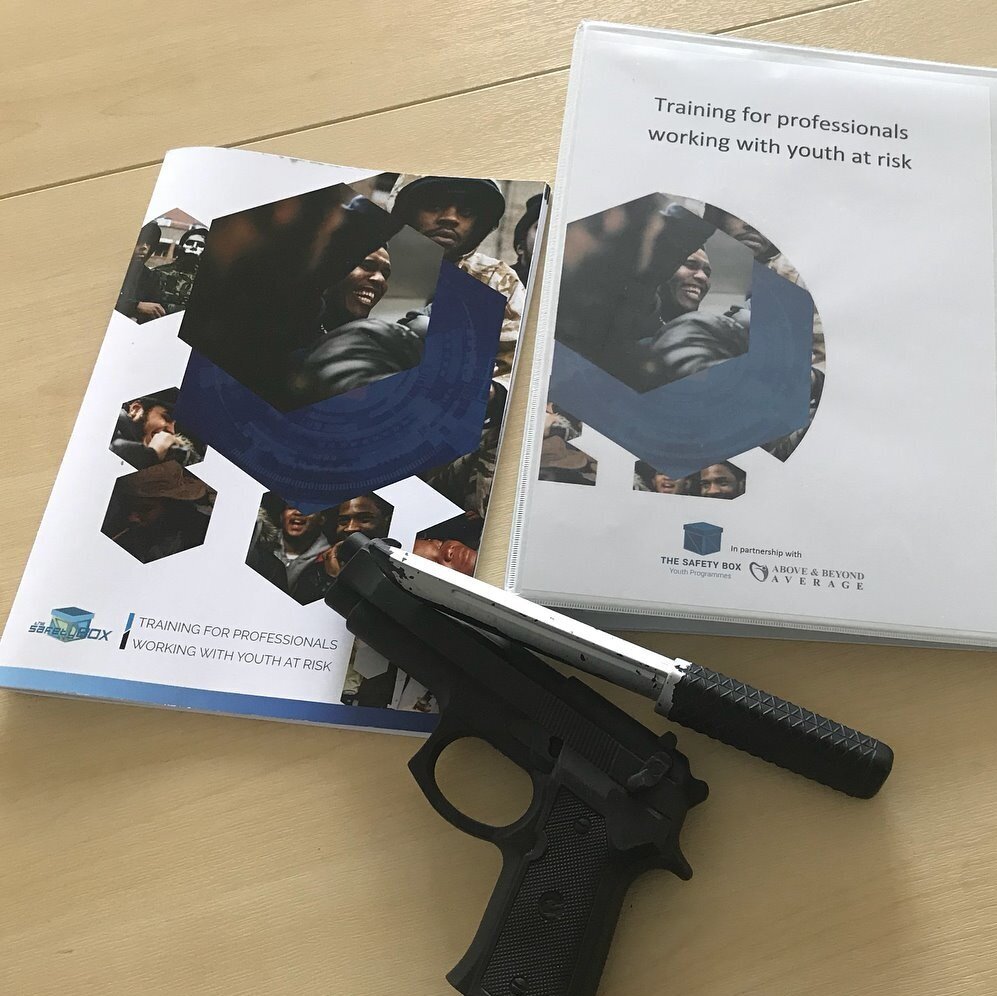TRAINING FOR PROFESSIONALS WORKing with Youth AT Risk
The Safety Box ® training is extensive requiring all members of the training to undertake both practical and theoretical learning. The training program is design for social workers, police, pastoral assistants, teachers, support workers, detached youth workers, youth mentors, health professionals, probation staff, youth workers, youth ministry leaders, gang workers and anyone that comes across young people that are at risk of CCE or are involved in criminal activity.
Our training programs run for 4 or 5 days depending on the program selected and normally start at 10am finishing at 4pm.
“I have recommended this training to my team and really believe this training should be offered to all. I also think our young people at risk of weapon use could benefit from the session that gave us practical advice in defending ourselves from a weapon attack and violence. Really fantastic training and I highly recommend it.”
Islington's Children and Families services Manager.
Viewing violence through the lens of public health, The Safety Box employs an evidence-based model, proven to reduce violence in different cultural contexts. By employing a pioneering epidemiological model, The Safety Box ® model is unique in the approach we take to handling violent behaviours and causing a mindset shift our theory of change model has been replicated in the UK and Jamaica.
Staff Training Courses with 12 month licence fee
Course 1 - Tailored to meet the need.
The Safety Box programme delivery, two courses delivered over 4 days.
Day 1 – Course 1 content training (tailored)
Day 2 – Course 1 content training (tailored), development of in house programme using our Theory of Change taught on day 1 and 2.
Day 3 – Course 2 content training (tailored)
Day 4 – Delivery of course content, support and structure and awards
Topics
The types of weapons and their use
Guns and how to avoid cross fire
Effective Communication and Body Language
Personality types & Traits
Behaviour management & cultural perspective
Understanding and recognizing trauma and the impact on young people
Therapeutic support:
How to deliver therapeutic support
Delivering support (a non traditional way)
Solution focused practice
Demystifying “Ganja” and “Spice”
Hormones, Violence, The Mind and Conflict
Knives and the Impact on the Body
Consequences of Knife Crime the long term impact on the family and sentencing
Changing your working style to meet the needs of youth at risk
Business and an alternative ways to make money
Conflict Resolution
Course 2 - personal protection and defence for professionals working with vulnerable adults and youth at risk.
Violence against social workers, care givers, youth mentors and professionals working with youth at risk is high. In fact violence against social workers is still being regarded as “just part of the job” and not being treated seriously, according to data gathered by Community Care.
In a survey conducted with 446 social workers, 85% said they had been physically assaulted, verbally abused or harassed with the year. In most cases the abuse was carried out by a service user or service user’s relative. Social workers reported being threatened with weapons, verbally abused, stabbed, held hostage, harassed in the street and having hot drinks thrown on them. Some had to move house or leave their jobs due to persistent abuse.
A social worker responding to the survey said: “On one occasion, a service user’s son threatened to hunt me down and talked about weapons he could use, all because I was supporting his father in his wish to access respite care.”
One reported four arson attacks to her car after a service user found out where she lived: “I had to give up my home and move,” she told us, while another reported being stabbed on two separate occasions, threatened with a firearm, spat at and punched in his 14 years in the profession.
Knife protection and personal safety training
Knowing when a young person may become violent
Understanding hormones
Fight, Freeze or Flight
Gross motor functional movement
Control and Restraint of Minors for professionals
Blocking and Deflection
Understanding danger zones
Personal Safety and Mental Awareness
Blocking against punches
Reading body language
Avoiding blunt objects
Conflict Resolution
Training for youth outreach workers and professionals on the frontline is very specific. All enrolled on this program are trained for a further 2 days the programs employ high-risk conflict mediation techniques to mediate conflict, stop retaliations, pre-empt and stop violent incidents occurring towards self or to young people in there care. As more and more members of the professional community are at risk of violence we feel it is important that professionals are taught the basics of how to stay safe whilst at work.
Click here to download the brochure for professional courses
Course 3 - cultural competency training and community engagement training for the police.
With the growing negative media coverage that the Metropolitan Police have been facing, especially with the recent cases of Sarah Everard and the way the police force handled the Memorial protests and the Black Lives Matter protest, the force has recognised that the perceptions of the police have been declining. In aims to rebuild trust and faith between the police and the community, the focus is turning to implicit bias training to help their staff recognise when they are relying upon assumptions and stereotypes.
Running from July 2021, the scheme set out by the Chief Inspector, Rhona Hunt, and the Metropolitan Police are meant to address the implicit biases and gaps the Metropolitan Police may have when dealing with Black and Asian people, victims of abuse or young people who may be reacting with trauma responses. One of the major activities of the our training was the use of Stop and Search role plays that our facilitators perform with the police, in order to highlight real life experiences from the points of view of both the police and the young people involved.
This is an effective tool for police to contemplate on any instinctive bias they may have formed without realising, but it also allows for a compassionate discussion to take place about the underlying issues behind a young person’s reaction. Our facilitators use role plays to showcase awareness and effective processes when dealing with cases of sexual assault, and particularly when dealing with children in cases of domestic violence. These role plays are eye-opening and productive and show examples of more empathetic and aware reactions to the victims in these situations.
The workshop is a powerful way of showing new officers how important their role is and how much of an impact each and every one of them will have on the lives of the people that they are here to protect.
The information gained at these events will stay with the police for years to come and will influence the way they protect our streets and our youth in a far more well-informed, understanding, and compassionate manner.
Replication Programs on Licence
Gang Intervention Strategies
Safeguarding against CCE for professionals
Who Can Enroll for our training programs?
LOW RISK PROGRAMS
Youth Organisations
Martial Art Schools / Instructors (compulsory for defence programs)
Former Teachers / Teachers
Exclusion Unit
Safeguarding Officers
Social Workers
Outreach Youth Workers
ISS Workers
Police
Probation Officers
Prison Officers
Gang workers
Learning Mentors
Frontline Gang Workers
Ex Offenders
CURE VIOLENCE - HIGH RISK INTERVENTION PROGRAMS
Ex Offenders with violent history
Former Gang Members
Cognizant "Street Aware" Youth Workers









